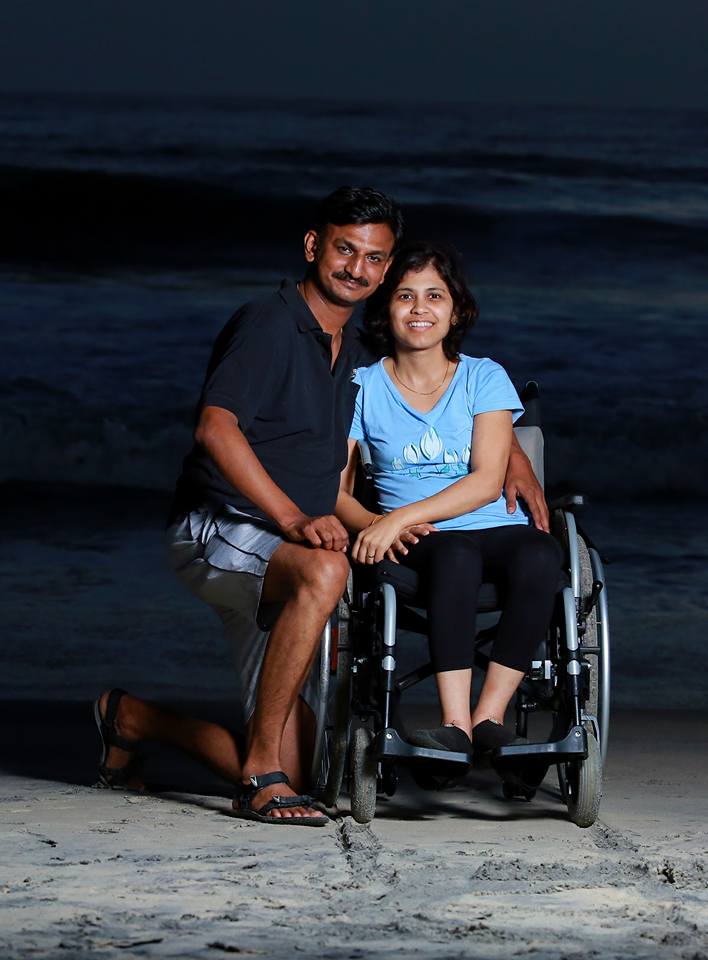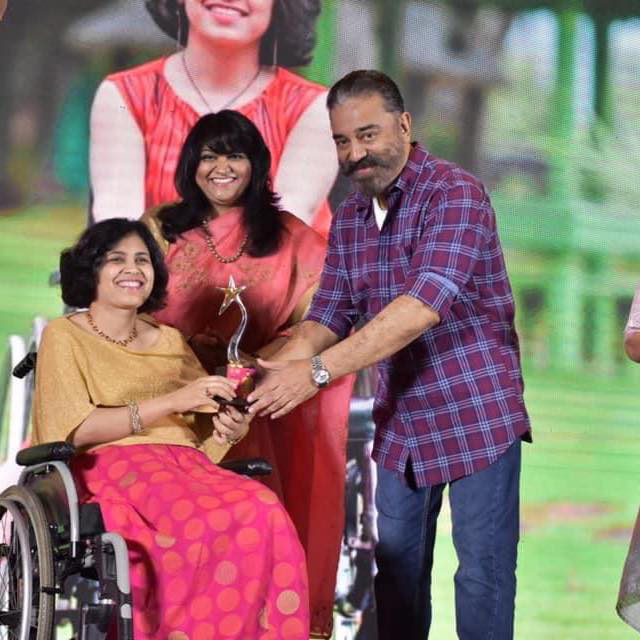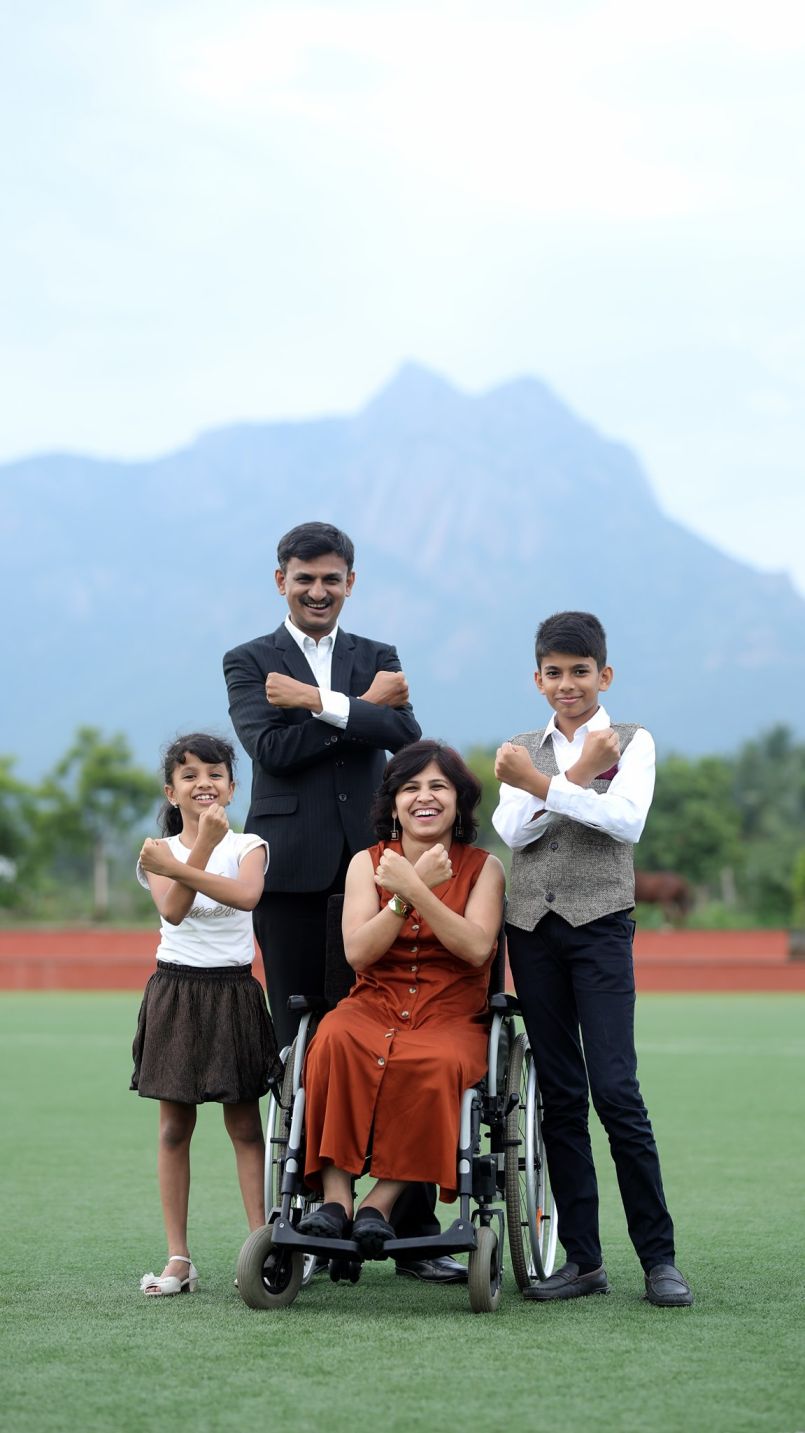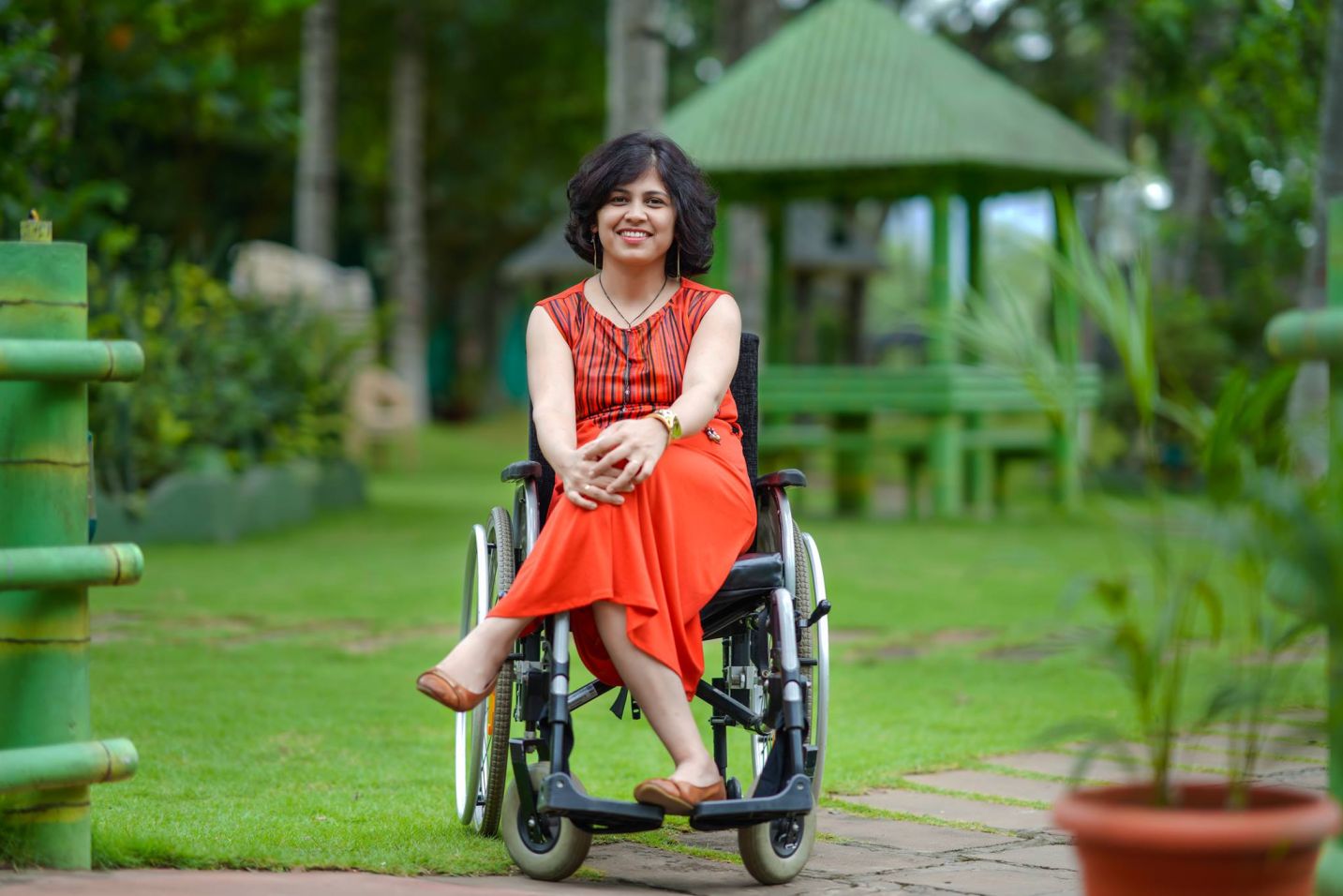“On the morning of 26 October 2009, I woke up feeling absolutely normal. In fact, the next day was my wedding anniversary, so it would even be right to say that I was in a rather buoyant mood. By afternoon that day, I started feeling feverish, so I popped a medicine. That same evening, when I tried to get out of the bed, I fell flat. I was paralysed from the neck down.”
Coimbatore resident Swarnalatha J was 29 years old when this happened.
At that point, while she did not know it yet, she was suffering from Primary Progressive Multiple Sclerosis (MS). And life thereafter was never the same for her.
Swarnalatha was no stranger to struggles, but this one would prove to be the most challenging. But true to form, she fights on with a smile on her face.
Now 42, Swarnalatha is an Asia Book of Records holder, a disability rights activist, a singer, photographer, motivational speaker and a beauty pageant winner. She often writes short stories and can also speak about 10 languages. Today, The Better India sits with her to catch a glimpse of her life with MS, and how she still soldiers on.
‘I picked up one piece at a time’

“I was born in Bangalore and was the second of four daughters. My parents had huge expectations that I would be a boy, and their disappointment when they found out otherwise was so strong that it translated into how I was treated later on,” she says.
Growing up in a household where she received no love or acceptance, she says always craved for that in all her relationships. “This was coupled with the fact that there was never enough money to go around, but too many mouths to feed,” she adds.
Once Swarnalatha completed her Class 10, she enrolled in a diploma course in computer science.
In her final year, she recalls being subjected to sexual abuse by her father’s brother.
“Instead of being treated like a victim, I was blamed and treated like the culprit. Moreover, I was placed under house arrest and was forced to give up on my course. I stayed like that for one whole year, all the while trying to convince my parents to let me study,” she says. “After a lot of back and forth, they finally relented and allowed me to complete my education.”
You would think that life would have started looking up for Swarnalatha, but just as she resumed her college, she met with an accident. “I sustained multiple injuries, which required me to go through several rounds of surgeries. I had injured my mandible bone (jaw), which meant that for almost six months, I was unable to speak or eat,” she says.
It took Swarnalatha one year to recover from the accident. Then, she went right back and completed her diploma, and says that she missed out on a first division by a mere two marks.
“I wanted to go on to study engineering, but my father issued an ultimatum saying that he could only pay for one girl’s education, and my sister was also pursuing her degree. I therefore chose option two, which was to work and support the family,” she says.
A few months later, Swarnalatha lost her father, and says that even though he had never really offered her much support, his loss was a big one. “Suddenly, we became a household with no man in it. It opened us up to so many taunts and comments being passed. It was difficult.”
Slowly, life started looking up again when she met Guruprasad, who she says is the love of her life. But their marriage, which was to be a happy occasion, was marred with strife when her parents severed ties with her as a result. Even on Guru’s family’s end, things didn’t look so bright. “I had imagined that my in-laws would be loving and supportive, but no such luck,” she says.
By then, Swarnalatha had started taking things in her stride, and says she was happy being married to Guru. Some time later, she also delivered her first child.
And then, 2009 arrived, and her MS diagnosis resulted in her losing her job in Bengaluru. “With the diagnosis, I became a misfit in the organisation,” she says. She goes back to when she fell on 26 October 2009 and says, “I tried almost five times to get up, and fell every single time. I finally had to crawl to the phone and reach out to Guru.”
‘A sense of liberation’

While the pronouncement of the diagnosis was done in a measured manner, Swarnalatha felt like it was a death sentence, she says. “The only thing I could do was speak and look at people around me – my ability to move any other part of my body from neck-down was taken away. I had far too many questions – Will I walk? Will I ever be able to hold my son? Will I survive this?” Also weighing heavy was the fact that she had no family support from either her or Guru’s side.
“I knew I had to live. I had to be able to take care of my son. Abandoning him was just not an option,” she says.
With an aggressive treatment plan, which included taking steroids, Swarnalatha was able to regain 60 per cent of her lost mobility. But the remaining was lost forever. Since the diagnosis in 2009, she has been losing the 60 per cent mobility as well, since this is a rapidly progressing disease.
In 2012, Swarnalatha was slowly able to walk small distances. By the next year, she started seeking support while walking. Next, she had to rely on a walking stick. Then, she moved to using a walker. By 2016, she could no longer walk without support, and had to start using a wheelchair.
There is an immense sense of rationality as she recalls each step of this progression — there is no anger, and every word is said in a matter of fact manner. “Yes, it all happened just like I am telling you, and yet, I survived it all,” she says.
She muses, “I know that death will come knocking soon – it is, after all, the next stage. Yet, when I think of it, I feel a sense of liberation. I look at it as something that will bring me immense peace, something that I have not experienced all through my life.” Until that moment, she says she wants to build happy memories to take to her grave.
‘No need for pity’

“When I was lying in the hospital surrounded by so many others in worse off situations, I started counting my blessings. That was a turning point for me,” she adds.
During her stay at the hospital, Swarnalatha says she saw many young people who had lost all control over their bodies. “I remember seeing a young boy pee his pants and then feel terribly embarrassed about it. I saw how parents had to hold their child’s face still to be able to feed them every meal. Seeing all that, I felt only gratitude for the situation I was in. I still had my mind to support me through this ordeal,” she says.
In 2011, Swarnalatha experienced what she calls a miracle when she became pregnant despite the progression of her multiple sclerosis disorder. “We chose to go ahead with the pregnancy, and somewhere, I knew I would deliver a baby girl. My mission thereafter became to treat her like a princess, just like a girl child should be,” she says.
After the delivery, the couple moved to Coimbatore, and Swarnalatha’s frequent hospitalisations meant that the onus of looking after the children fell on Guru. “He would cook, clean and take care of the children as well.”
In 2014, Swarnalatha and Guru started the Swarga Foundation to help improve the lives of those afflicted with MS and other neuromuscular disorders.

“This is a disorder that leaves you completely at the mercy of another being. I cannot put on my own clothes or even my footwear. I cannot write because I have no grip – every time I go to the bank, my signature seems to undergo a change, and there is nothing I can do about it.”
Through the foundation, Swarnalatha and Guru say they have reached out to millions of patients and families of those impacted by MS. They offer counselling services as well as technical counselling to understand how to choose the best wheelchair, and which place to reach out to for the most affordable treatment opportunities, among others. They also reimburse patients for medication. The money for this comes from all that the couple has saved over the years.
“I use the money I make from the motivational talks I deliver for all this. So far, I have given over 150 motivational talks,” she says.
Meanwhile, she urges us to re-calibrate our minds when we think of disabled people. “Do not think of us as those who are looking out for your charity – we do not need your pity, what we need is better accessibility to places and the chance to live a fulfilling life,” she says.
Today, Swarnalatha is 80 per cent disabled, but says there is so much untapped potential in her. “If I, with all these factors holding me back, am able to do so much, what is stopping you?”
To know more about the work that Swarga Foundation does, click here.
(Edited by Divya Sethu)
No comments:
Post a Comment